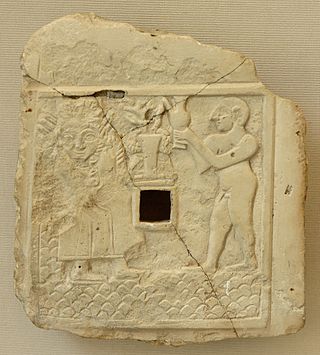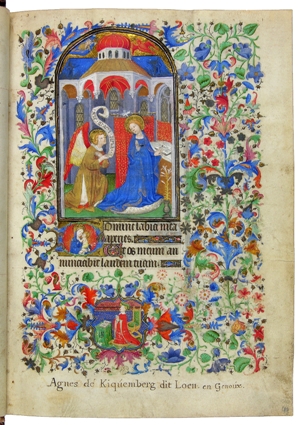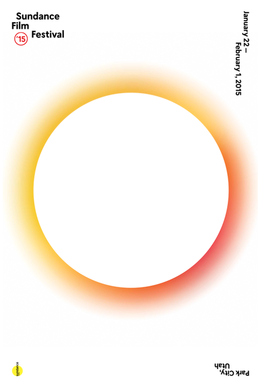
Ayahuasca is a South American psychoactive brew,traditionally used by Indigenous cultures and folk healers in Amazon and Orinoco basins for spiritual ceremonies,divination,and healing a variety of psychosomatic complaints. Originally restricted to areas of Peru,Brazil,Colombia and Ecuador,in the middle of 20th century it became widespread in Brazil in context of appearance of syncretic religions that uses ayahuasca as a sacrament,like Santo Daime,União do Vegetal and Barquinha,which blend elements of Amazonian Shamanism,Christianity,Kardecist Spiritism,and African-Brazilian religions such as Umbanda,Candombléand Tambor de Mina,later expanding to several countries across all continents,notably the United States and Western Europe,and,more incipiently,in Eastern Europe,South Africa,Australia,and Japan.

The Temple of Heaven is a complex of imperial religious buildings situated in the southeastern part of central Beijing. The complex was visited by the Emperors of the Ming and Qing dynasties for annual ceremonies of prayer to Heaven for a good harvest. The Temple of Heaven was inscribed as a World Heritage site in 1998 and was described as "a masterpiece of architecture and landscape design which simply and graphically illustrates a cosmogony of great importance for the evolution of one of the world's great civilizations..." as the "symbolic layout and design of the Temple of Heaven had a profound influence on architecture and planning in the Far East over many centuries."
Pawnee mythology is the body of oral history,cosmology,and myths of the Pawnee people concerning their gods and heroes. The Pawnee are a federally recognized tribe of Native Americans,originally located on the Great Plains along tributaries of the Missouri and Platte Rivers in Nebraska and Kansas and currently located in Oklahoma. They traditionally speak Pawnee,a Caddoan language. The Pawnees lived in villages of earth lodges. They grew corn and went on long bison hunts on the open plains twice a year. The tribe has four bands:the Skidi and "the South Bands" consisted of the Chawi,the Kitkahahki and the Pitahawirata Pawnee.

A libation is a ritual pouring of a liquid,or grains such as rice,as an offering to a deity or spirit,or in memory of the dead. It was common in many religions of antiquity and continues to be offered in cultures today.
Religions with the belief in a future judgment,a resurrection of the dead or a purgatory often offer prayers on behalf of the dead to God.

Matins is a canonical hour in Christian liturgy,originally sung during the darkness of early morning.

Psalm 51,one of the penitential psalms,is the 51st psalm of the Book of Psalms,beginning in English in the King James Version:"Have mercy upon me,O God". In the slightly different numbering system used in the Greek Septuagint and Latin Vulgate translations of the Bible,this psalm is Psalm 50. In Latin,it is known as Miserere,in Ancient Greek: ἭἘλεήμων,romanized: HḗEleḗmōn),especially in musical settings. The introduction in the text says that it was composed by David as a confession to God after he sinned with Bathsheba.

Yasna is the Avestan name of Zoroastrianism's principal act of worship. It is also the name of the primary liturgical collection of Avesta texts,recited during that yasna ceremony.
Neoshamanism refers to new forms of shamanism. It usually means shamanism practiced by Western people as a type of New Age spirituality,without a connection to traditional shamanic societies. It is sometimes also used for modern shamanic rituals and practices which,although they have some connection to the traditional societies in which they originated,have been adapted somehow to modern circumstances. This can include "shamanic" rituals performed as an exhibition,either on stage or for shamanic tourism,as well as modern derivations of traditional systems that incorporate new technology and worldviews.

Santo Daime is a syncretic religion founded in the 1930s in the Brazilian Amazonian state of Acre by Raimundo Irineu Serra,known as Mestre Irineu. Santo Daime incorporates elements of several religious or spiritual traditions including Folk Catholicism,Kardecist Spiritism,African animism and indigenous South American shamanism,including vegetalismo.
Sext,or Sixth Hour,is a canonical hour of the Divine Office of almost all the traditional Christian liturgies. It consists mainly of psalms and is held around noon. Its name comes from Latin and refers to the sixth hour of the day after dawn. With Terce,None and Compline it belongs to the so-called "Little Hours".

Nocturns is a Christian canonical hour said in the nighttime.

Icaro is a South American indigenous and mestizo colloquialism for magic song. Today,this term is commonly used to describe the medicine songs performed in vegetal ceremonies,especially by shamans in ayahuasca ceremonies.
Shalako is a series of dances and ceremonies conducted by the Native American Zuni people for the Zuni people at the winter solstice,typically following the harvest. The Shalako ceremony and feast has been closed to non-native peoples since 1990. However,non-native peoples may be invited as guests by a Zuni tribal member.

The Midnight Office is one of the Canonical Hours that compose the cycle of daily worship in the Byzantine Rite. The office originated as a purely monastic devotion inspired by Psalm 118:62,At midnight I arose to give thanks unto Thee for the judgments of Thy righteousness (LXX),and also by the Gospel Parable of the Wise and Foolish Virgins.

The Jivaroan peoples are the indigenous peoples in the headwaters of the Marañon River and its tributaries,in northern Peru and eastern Ecuador. The tribes speak the Chicham languages.
The Eternal Sacred Order of Cherubim and Seraphim,also known as the esocs,is a church denomination in Nigeria that was founded by Moses Orimolade Tunolase in 1925. Orimolade received considerable media attention when he allegedly healed a girl,Christina Abiodun Akinsowon,from a long-term trance in which she could neither speak nor hear. After the healing event,Orimolade Tunolase and Abiodun Akinsowon teamed up,as father and adopted daughter,and offered their services to heal and pray for people.
Vegetalismo is a term used to refer to a practice of mestizo shamanism in the Peruvian Amazon in which the shamans—known as vegetalistas—are said to gain their knowledge and power to cure from the vegetales,or plants of the region. Many believe to receive their knowledge from ingesting the hallucinogenic,emetic brew ayahuasca.

The 2015 Sundance Film Festival took place from January 22 to February 1,2015. What Happened,Miss Simone?,a biographical documentary film about American singer Nina Simone,opened the festival. Comedy-drama film Grandma,directed by Paul Weitz,served as the closing night film.

The African and Caribbean War Memorial in Brixton,London,is the United Kingdom's national memorial to African and Caribbean service personnel who fought in the First and Second World Wars. It originated with a project for a memorial to Caribbean Royal Air Force veterans of World War II who arrived in Britain in 1948 on the MV Empire Windrush;this was an extension of the commemorative plaque and sculpture scheme run by the Nubian Jak Community Trust to highlight the historic contributions of Black and minority ethnic people in Britain. The memorial was originally to have been placed at Tilbury Docks,as part of the commemoration for the centenary of the outbreak of World War I. However,as the project began to evolve into a larger tribute that included both World Wars and commemorated servicemen and women from both Africa and the Caribbean,it was agreed by the memorial recipient –the Port of Tilbury –and the project organisers that a new,more accessible location needed to found. The memorial was ultimately permanently installed and unveiled on 22 June 2017 in Windrush Square,Brixton.













